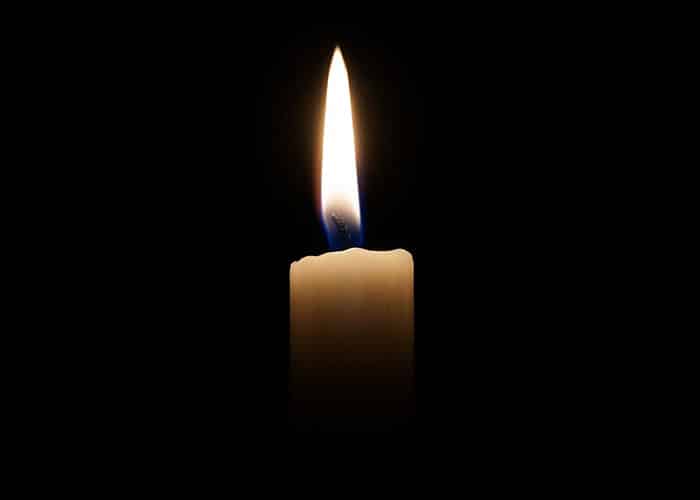Have you lost one of your loved ones and are you wondering about the steps to take with the bank after a death? Discover the process of a succession, the different stages as well as the deadlines to be respected.
Summary
Bank, what to do in the event of the death of a loved one
As a spouse or family member, you must notify the organizations in which the deceased was the holder or co-holder of one or more bank accounts, or held financial investments.
As soon as it is informed of the death of its client, the bank blocks its accounts (except in the case of joint accounts). In the presence of a safe, the establishment also blocks access while waiting to receive the indications of the notary in charge of the succession.
If you do not know where the deceased has bank or investment accounts, you can request a consultation of the Bank Accounts File (FICOBA). This file lists all the bank accounts held in France.
For your request to be effective, you must send it by post, enclosing a copy of the death certificate and a certificate proving your status as heir. Send your mail to the following address:
Establishment of IT services
Administrative FICOBA
22 John Fitzgerald Kennedy Avenue
77 796 Nemours Cedex
Note: the notary in charge of the succession can directly access the FICOBA file.
The steps to take with the bank in the event of the death of a loved one
If you know where the deceased person’s account or investment is held, you should make an appointment with a bank advisor.
To prepare for the appointment, bring the following documents:
- death certificate ;
- photocopy of the family book or birth certificate extract;
- unused checkbooks (except in the case of a joint account), bank cards of the deceased person;
- original life insurance contracts (if applicable);
- the contact details of the notary (if applicable).
Then, as soon as possible, provide the bank advisor with the following documents:
- deed of hereditary notoriety issued by the notary. The document is also called deed of inheritance. It indicates the distribution of the assets left by the deceased;
- certificate of heir signed by all the heirs in the absence of recourse to a notary.
What does the bank do in the event of the death of its client?
A file is sent to the bank’s succession department. This service will guide you in your first steps by managing the file from its opening until its settlement.
In addition, the succession department of the financial institution is responsible for:
- search for all elements forming part of the estate;
- pay the funeral expenses if the balance of the account allows it (upon presentation of the invoice). Sometimes, the deceased has taken out a specific contract with his bank or insurance company so that everything is settled in advance;
- declare to the notary the bank assets owned by the deceased;
- intervening with insurance companies in the event of loans, investments, etc.;
- settle the estate;
- carry out the tax declaration as a bank.
To note : the bank invoices you for all the work carried out in the form of administration fees. They are then proportional to the amount of the estate.
Can the individual bank account of a deceased person be used to pay expenses?
According to article L312-1-4 of the Monetary and Financial Code, it is possible to release part of the account up to 5000 euros to allow the heirs to pay certain costs such as:
- current invoices;
- debts;
- taxes;
- or costs of care.
For this, all the heirs must sign a certificate certifying their status as heir. Then, the person in charge of requesting the unblocking of the individual account will present the civil status documents to the bank attesting to the rights of each of the heirs.
To know : in the event of an abusive withdrawal, the bank assumes responsibility before the law and the tax authorities.
How long do you have to notify the bank? The agenda of procedures
The death of a loved one is an extremely painful moment in life. But which, unfortunately, does not dispense with taking steps. Indeed, following the death of a loved one, you must notify certain organizations and complete the formalities.
Within 24 hours
You must start by requesting a death certificate from the doctor who certified the death. This document is essential for declaring the death at the town hall. The administration will also ask you to send the identity papers of the deceased (identity card or residence permit, family record book).
Within 24 hours of the death, you must find out whether the deceased has expressed his last wishes regarding the funeral (eg cremation, scattering of ashes, organ donation, etc.). It can also be wishes relating to a place of ceremony or linked to a religious office. Be aware that these last wishes may have been recorded in writing in a funeral insurance contract or a will. They may also have been expressed orally to a loved one.
Then, you should contact the funeral directors. The deceased may have signed a contract with one of these companies. Otherwise, you must choose the company yourself.
Finally, you must write and publish the obituary.
During the week
You then have a week to inform the main organizations on which the deceased depended: CPAM or MSA, other schemes or funds, Caf, mutual insurance, etc.
You also have one week to inform the banks and credit organizations of the death. Do not forget to notify your employer or Pôle Emploi if necessary.
Finally, in the event of Pacs of the deceased person, you will have to inform the Court of instance which will dissolve the Pacs. And if the deceased was in school, notify their school.
Within a month or within six months
You have more time to contact or choose the notary who will take care of settling the estate. Know that the use of this professional is mandatory if the estate includes real estate or if its amount is equal to or greater than 5000 euros, or if there is a will or a donation.
The notary will then take care of preventing the taxes. For your part, inform the insurance companies, tenants or lessors. And terminate current contracts and subscriptions.




